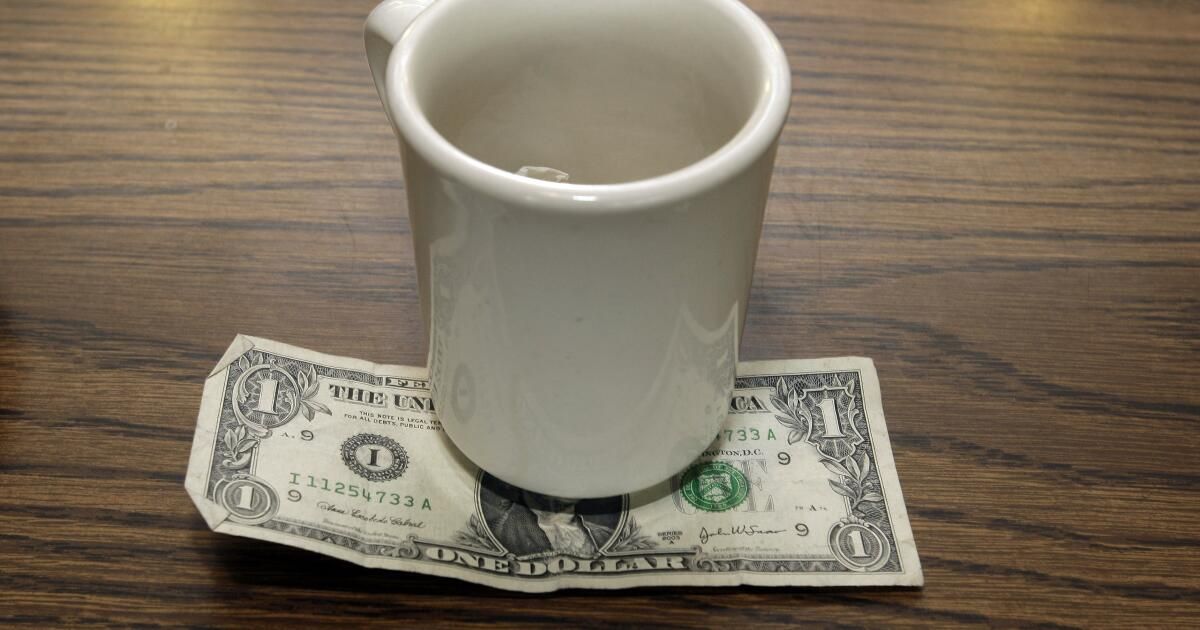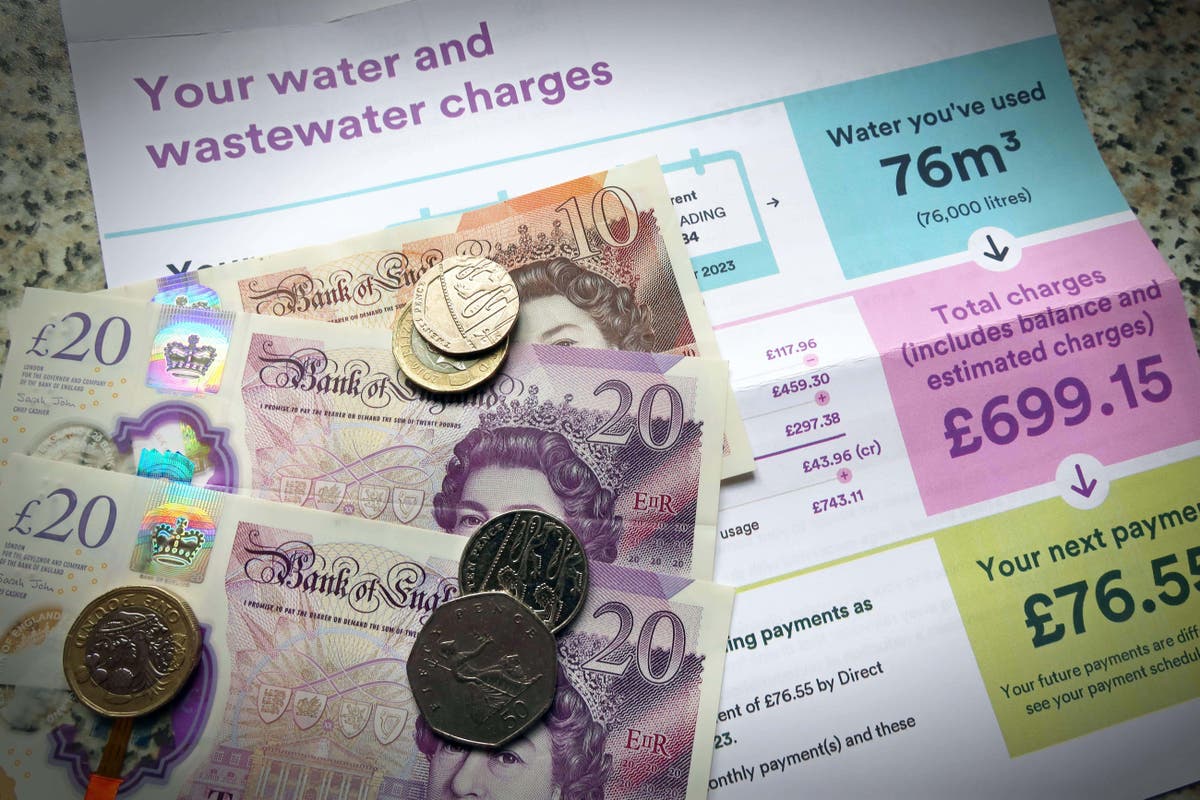On a good night, Chris Lopez, a bartender and waiter in Southern California for eight years, can earn between $200 and $400 in tips.
So when the 31-year-old, who lives in Orange, first heard the news about President-elect Donald Trump's campaign promise to “not tax tips,” he was excited.
“That's a great idea,” he thought to himself.
But when he learned more about the proposal, he wondered if he would benefit at all.
In June, Trump told attendees at a rally in Las Vegas — a city with the highest proportion of restaurant, hotel and casino workers in the country — that, if elected, he would eliminate federal taxes on tipped income. The news was initially greeted with enthusiasm by Lopez and several members of the service industry, where tips can generate a good portion of take-home pay.
Vice President Democratic opponent Kamala Harris followed up with a similar pledge to not tax tips, also at a rally in Nevada, a critical swing state.
In Congress, the idea of not taxing tips gained political traction on both sides of the political aisle with bills introduced in the House and Senate. Senator Ted Cruz (R-Texas) was the first to introduce the No Tip Tax Act in July with the support of Democratic Senators Catherine Cortez Masto and Jacky Rosen of Nevada. The legislation exempts tipped wages from federal income taxes, but not payroll taxes, which fund Medicare and Social Security. Around the same time, Rep. Thomas Massie (R-Ky.) introduced a House bill that excludes tips not only from federal income taxes but also from payroll taxes.
Economists and tax experts have criticized the bills. The Tax Foundation estimates that untaxed tip income could add $107 billion over the next decade to the federal deficit. Others argue that tipped income should be taxed like any other form of workers' compensation, noting that the bills have few barriers to prevent high-earning professionals (such as lawyers or hedge fund managers) from shifting their compensation to a tip model to avoid income tax on those earnings.
In September, Democratic Rep. Steven Horsford and six Democratic cosponsors introduced the Tip Income Support and Protection Act, which addresses some of these concerns. While it allows workers to deduct income earned from tips like the other bills, it limits the deduction to people with adjusted gross income less than $112,500 and restricts the allowance to those who “traditionally and habitually received tips.” It also eliminates the separate subminimum wage paid to tipped workers. The bill was introduced without Republican support.
Trump has yet to say whether he would like Congress to consider a bill similar to Cruz's that applies only to income taxes or legislation that, like Massie's bill, also applies to federal payroll taxes. .
Tax experts believe it will be legislatively impossible to eliminate the payroll tax on tips because there are strict budget reconciliation rules that do not allow Social Security to be affected.
However, eliminating the income tax on tips is an easier solution, said Ben Ritz, vice president of policy development at the Progressive Policy Institute.
“I think this is more likely to happen right now,” Ritz said. “For Trump, this was very blatant pandering to Nevada service workers. I think, having won Nevada and this being one of the core fiscal policies that he actually had in the Republican platform, I think it's one of the most likely to turn the screws on Congress. “If he’s going to fight Congress over something, I could see him spending capital on it.”
Howard Gleckman, senior fellow at the Urban-Brookings Tax Policy Center, said that if the proposal only focuses on the income tax (and not eliminating the payroll tax) the cut won't be as significant.
“It's one of those things where there's a lot less than meets the eye,” he said.
First, the provision would affect a small number of employees in the country. In 2023, there were an estimated four million tipped workers in the United States (including restaurant servers, bartenders, hairdressers, taxi and rideshare drivers), about 2.5% of the labor market, according to the Budget Lab. from Yale University.
And of those who receive tips, tax analysts and economists said, the tax cut would not help a large portion of them. An estimated 40% of tipped workers would see no benefit from such a proposal because they make so little money that they no longer pay any income taxes, Gleckman found in his analysis.
“So if you're no longer paying any income tax, telling yourself that you don't have to pay income tax doesn't do you any good,” he said, “because you're already at zero.”
If you look just at the restaurant industry, there are about 2.2 million servers in the U.S. and about half make less than $37,000 a year, according to 2023 Bureau of Labor statistics. If they claim standard deduction, these workers earn too little to have to pay much federal income tax. Many are likely to claim other forms of tax relief, such as the Earned Income Tax Credit and the Child Tax Credit, which would likely bring them to zero income taxes.
Those who will benefit most, Gleckman said, are tipped wage earners who make more money, such as servers at higher-end restaurants.
That's a small fraction of waiters: About 10% of waiters earn $60,000 or more a year, according to the Bureau of Labor Statistics.
“So if that's you… if you're a waiter at the French Laundry or somewhere where dinner costs around $300, a 20% tip is a good amount of money. “It’s $60,” he said. “But if you're a waiter at Mom's restaurant, where the blue plate special is $9.95, the tip is $2.”
Union and restaurant industry leaders are also wary, with some believing the move could end up hurting restaurant workers in the long run.
Erika Polmar, executive director and founding member of the Independent Restaurant Coalition, said she's glad the issue of tipping is part of the national conversation because it means people are thinking about restaurant workers.
“As far as actual fiscal policy goes, right now I'm struggling to see if this is the right solution,” he said. “If you eliminate tip taxes but don't make any other policy changes to allow for other compensation models, you're actually hurting the very people you're trying to help.”
Polmar said many of the restaurant and bar operators who are part of the coalition are eager to stop tipping because of the challenges it presents, such as inequities among front-of-house workers who tend to earn more in tips to support . Domestic workers who earn little or no money in tips.
Caroline Styne, a restaurateur and co-owner and wine director of the Lucques restaurant group, said no income tax on tips would likely “create a lot of animosity on the part of non-tipped employees.”
Front- and back-of-house workers share tips at Styne restaurants, but that may not be the case at other restaurants.
Even if tips are shared, a dishwasher who works in the back of the kitchen tends to earn significantly less than front-of-house workers, particularly servers, said Mary Sue Milliken, chef and co-founder of Mundo Hospitality Group, whose restaurants include Socalo. , Border Grill and Alice B.
“It just doesn't seem fair,” Milliken said. “I don't understand why. Why should someone who earns tips get a tax reduction but the dishwasher doesn't?
Gleckman adds that the legislation could also exacerbate a backlash from diners: “There may be some customers in restaurants who say, 'Hey, wait a minute?' Why does the server get tax-free income and I don't? “
There is already a backlash to the tipping culture, which many experts say has gotten out of control.
Still, for all his misgivings, Milliken believes the proposal was put forward in “the right spirit” to try to help the struggling restaurant industry.
“We need federal and local governments to look at how restaurants can better survive and how we can pay a better living wage,” he said. “I don't think this proposal makes any sense. “Higher wage earners will get a benefit and lower wage earners will not be able to use it in any meaningful way.”
Maria Hernandez, spokeswoman for Unite Here Local 11, said the group, which represents 32,000 hospitality workers in Southern California and Arizona, supports eliminating tip taxes.
“But the real solution,” he said, “is to raise the federal minimum wage, which has been stuck at $7.25 for decades.”
The proposal could also slow efforts by several states to raise the minimum wage for tipped workers.
The state minimum wage for tipped workers varies: from $16.28 in Washington state to $2.13 in Oklahoma. In Los Angeles, the minimum wage for tipped workers is $16.78.
“So if you tell tipped workers that their tips will be exempt and their wages will be taxable, most would say, 'I'd rather take tax-free tips than a higher minimum wage,' which is not in their best interest. Gleckman said. “The siren call of no taxes often outweighs the actual financial benefit of making a particular decision.”












